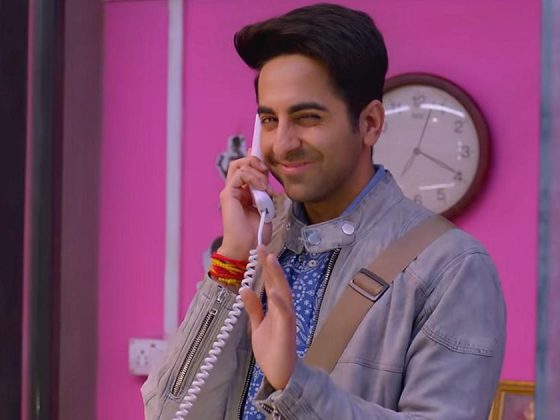‘Akeli’ is a jarring depiction, a tapestry of shocks and fears that lingers in the mind, though at times, the seamless portrayal of events may falter in its endeavor to fully persuade. Drawing inspiration from the harrowing journey of a real-life Middle Eastern woman, it weaves a tale of unwavering determination, resilience, and bravery. The narrative also sheds light on the abhorrent cruelties inflicted upon women by the insidious grasp of terrorist organization “ISIS.”
In the middle of a road, an impotent teenage girl is bound by explosive devices on her body. This heart-wrenching scene unfolds as her anguished mother watches from a distance, her cries for help echoing through the air. The skilled bomb squad races against time, striving to disarm the explosives and rescue the girl. The tension escalates as the seconds tick away, until a deafening blast shatters the calm, engulfing the surroundings in a chaotic maelstrom of dust and flames. Bystanders scramble frantically, seeking safety in the face of the unexpected eruption. It is within this spine-chilling moment when you grasp the undeniable truth: Nushrratt Bharucha’s ‘Akeli’ will be a tenacious watch. And that’s how ‘Akeli’ begins.
Till date, it required the firepower of two Bollywood superstars, Akshay Kumar in ‘Airlift’ and Salman Khan in ‘Tiger Zinda Hai’, to rescue Indians trapped in conflict zones. However, in ‘Akeli,’ we see the petite Nushrratt Bharuccha facing off against formidable Islamic State militants all by herself. The film’s main issue lies in its implausibility, not because a woman can’t be brave, but because the obstacles in her way are effortlessly overcome.
Nushrratt plays ‘Jyoti,’ the breadwinner for her mother (Piloo Vidyarthi) and niece (Mannat Duggal). Losing a job at the airport during the financial crisis in the family, forced Jyoti to seek work at a garment factory in Mosul, Iraq. Despite being assured of safety by the agent, the conditions deteriorate shortly after her arrival. Returning home isn’t an option. Initially, things run smoothly at the factory, and Jyoti even kindles romance with the charming Pakistani manager Rafiq (Nishant Dahiya).
However, when ISIS seizes control of the city, they target the factory to abduct women to turn them into sex slaves. Jyoti confronts their ruthless, lollipop-sucking leader (played by Amir Boutrous), and defeats him with an accidental push. Eventually, she finds herself ensnared in the clutches of the feared Assad (Tsahi Halevi) and his harem. Jyoti’s beauty seems to shield her from some of the violence other young women endure. Persistently attempting to save lives, including her own, and escape from ISIS’s grip, Jyoti’s endeavors are met with repeated failures. Her ultimate goal remains to break free from captivity and return to her homeland.
Guided by the hand of debutant director Pranay Meshram, the film delves deep into the realms of bloodshed and horror, utilizing these elements not merely for shock value, but to invoke genuine introspection.
The creators take a daring step, but as the story progresses, it loses its edge. The trio of writers – Pranay Meshram, Gunjan Saxena, and Ayush Tiwari – lay the foundation for a promising plot, mainly revolving around the powerful characters of Jyoti and Assad. Unfortunately, the rest of the characters and the plot itself feel underdeveloped.
Tsahi Halevi’s portrayal of Assad might evoke strong dislike due to his brutal actions. With his disturbing fondness for handcuffs and a cruel penchant for tormenting women, he creates a sense of intense discomfort. There’s a particularly intense scene where he sings the Arabic song “Wayak” just before subjecting Jyoti to a sexual assault.
What truly lifts the gradually unfolding 127-minute storyline is the gripping background score by Rohit Kulkari. Coupled with Hitesh Sonik’s composition “Umeedon Ki Titliyan,” soulfully sung by Sunidhi Chauhan, the music courses through your veins, quickening your heartbeat during intense scenes and eliciting empathy for the vulnerable characters, even bringing tears to your eyes.
A few months ago, we witnessed ‘The Kerala Story’, where innocent Indian girls are forced into conversion to Islam and then transported to Syria, destined to endure the grim fate of sex slavery. Similarly, ‘Akeli’ also seems driven by a comparable motive — to acquaint us with the brutal methods employed by ISIS. However, the extent of artistic liberty exercised in this rendition tends to stretch the boundaries of credibility.
Other than these, what Akeli puts a minor focus on is the role of media and the Indian government in supporting the victims trapped in the wrecking place. We get scenes where Jyoti’s mother and niece are struggling to get government’s help in bringing her back home, where we witness them getting abandoned initially. In a scene, a reporter takes Jyoti’s mother’s byte but her expressions purely state her just doing that for the sake.
‘Akeli’ is an unrelenting experience, both literally and metaphorically. It’s a challenging watch, not suitable for a fragile heart. If you choose to watch it at the theaters near you, do so primarily for Nushrratt’s exceptional performance, as she delivers a remarkable portrayal that stands out.











